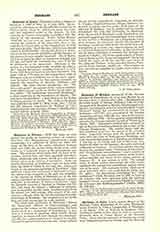

Hermann of Altach (NIEDERALTAICH), a medieval historian; b. 1200 or 1201; d. July 31, 1275. He received his education at the Benedictine monastery of Niederaltaich, where he afterwards made his vows and was appointed custos of the church. In this capacity he became thoroughly acquainted with the records of the monastery. Under Abbot Ditmar (1232-42) he was sent on important missions concerning the interests of the monastery, first to the emperor at Verona, then to the Roman Curia in 1239 and again in 1240. On October 27, 1242, he was elected Abbot of Niederaltaich. During his abbacy of thirty-one years the monastic discipline and the finances of the monastery were greatly improved. On March 12, 1273, he resigned his office on account of ill-health and old age, and spent the remaining two years of his life in retirement at his monastery. Hermann is the author of a few historical works, of which the chief is the “Annales Hermanni”, reaching from 1137 to 1273. Up to 1146 they are based on previous chronicles; but from 1146 to 1173 they are the independent work of Hermann and are considered one of the most important historical sources for that period, especially as regards the countries of Bavaria, Bohemia, and Austria. His other literary productions are: “De rebus suis gestis”, an account of the various architectural improvements made at Niederaltaich while he was abbot; “De institutione monasterii Altahensis”, a short narration of the foundation of Altach; “De advocatis Altahensibus”, a brief history of the Dukes of Bogen, patrons of Altach. The works of Hermann were published by Jaffe in “Mon. Germ. Hist.”, XVII, 351-427, German translation by Weiland in “Geschichtschreiber der deutschen Vorzeit” (Berlin, 1871; second edition, Leipzig, 1898).
MICHAEL OTT

